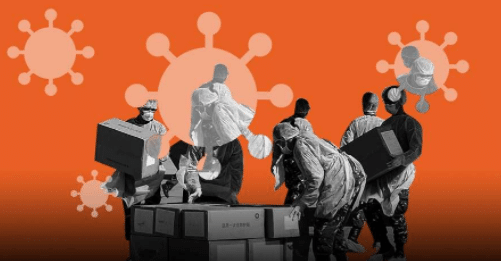Humanitarian lessons from the past and the Covid-19 response
This webinar, co-organised by CMI, Norad and the NCHS, explored the opportunities and challenges for development assistance in responding to the Covid-19 pandemic.
The Covid-19 pandemic and its response has brought power structures and cultural biases within the humanitarian scene to the forefront yet again, sparking discussions on differential treatment between local and international staff and on the global distribution of funds and equipment. Part of this picture is how the “corona crisis” is represented in the media as a “humanitarian problem,” and how policy-makers and practitioners are thinking about humanitarian responses in this setting.
This webinar examines the field of humanitarian studies as part of this broader picture. The field of humanitarian studies is itself criticised for being centred on the “Global North” and defined by Eurocentric perspectives. As a parallel to the agenda of “localising humanitarian aid,” efforts are being made at countering this tendency by including scholars and perceptions from “the Global South.”
By using the pandemic as a point of entry, this webinar explores how humanitarian crises are understood and interpreted in the field of humanitarian studies, and how voices from the Global South can contribute to better understandings.
In particular, this webinar discusses:
Dorothea Hilhorst (International Institute of Social Studies) provides the introduction, folllowed by a panel discussion with speakers Mihir Bhatt (All India Disaster Mitigation Institute), Tanya Wood (CHS Alliance), Kristoffer Lidén (Peace Research Institute Oslo)
Held on 20 August 2020, this webinar was co-hosted by the International Humanitarian Studies Associated and the NCHS.
